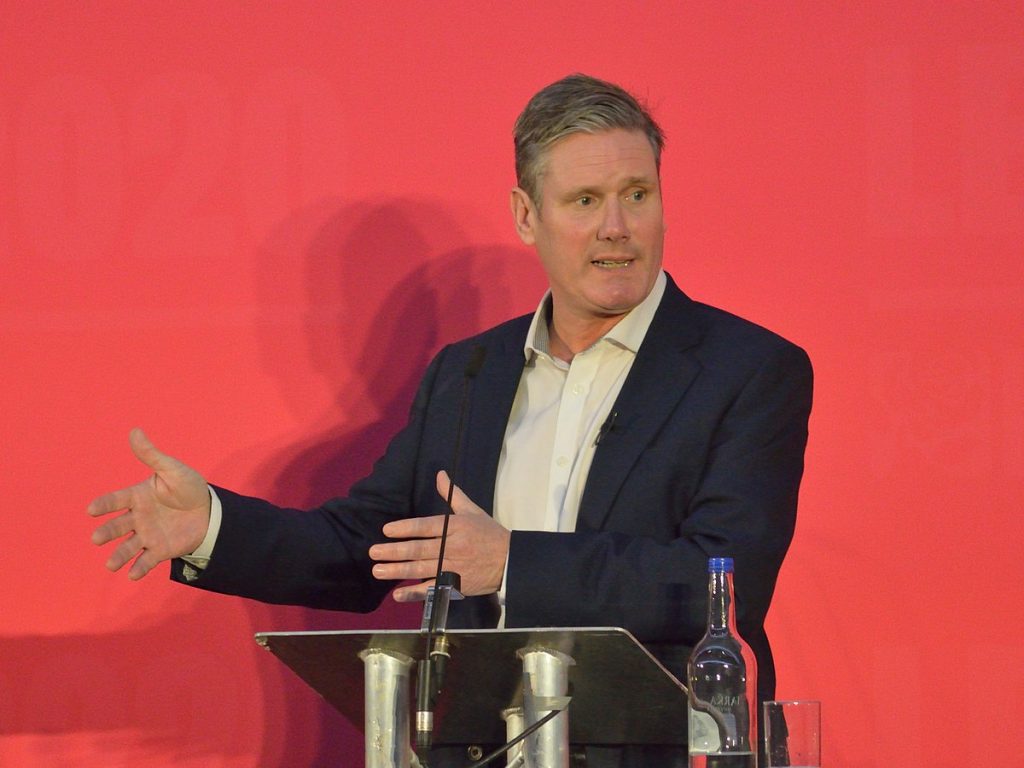Eric Shaw, Senior Lecturer in Politics, Faculty of Arts and Humanities
Party leaders matter more than ever in today’s politics. They embody their parties in the public’s mind and, for many voters, assessing a leader is a cognitive shortcut simplifying the process of electoral choice. So, Keir Starmer’s election as the UK’s Labour party leader, defeating Rebecca Long-Bailey (the “continuity candidate”) and Lisa Nandy, will have a major effect on the party’s prospects for revival.
Starmer starts in the job during a global crisis that few can have anticipated. At this moment in time, it’s impossible even to guess the political consequences of the Coronavirus epidemic, though they are bound to be profound. It’s pointless to speculate how the pandemic will affect Starmer’s leadership, other than much will depend on his capacity to inspire trust and confidence in an age of fear, anxiety and insecurity.
Starmer was only elected to parliament in 2015. He therefore enters his new role with less political experience than any of his predecessors. But he has accumulated invaluable experience outside politics. On joining the bar, he rapidly established himself as one of the brightest barristers of his generation. In 2002, he was appointed a Queen’s Counsel (QC) and became joint head of Doughty Street Chambers (Amal Clooney was a colleague) specialising in human rights cases.
In 2008, he was appointed to one of the most senior positions in the judicial system, becoming director of public prosecutions (DPP) and head of the Crown Prosecution Service (CPS), staying in the post until 2013. He was held in high regard in the profession and, in 2014, received a knighthood for services to law and criminal justice. Those who worked with him attest to his integrity, his meticulous attention to detail, his diligence and his keen forensic skills.
In 2016, a year after his election, Starmer joined the shadow cabinet in the crucial role of shadow Brexit secretary. He tended to be low key, avoiding controversy and the factional battles tearing the party apart. However, relations with the Corbyn wing of the party could be tense.
During the leadership contest, some on the left depicted Starmer as a classic establishment figure – well-groomed, well-spoken and a knight to boot. More seriously, he was held responsible for the crushing 2019 election defeat for his determined advocacy of a second Brexit referendum and his close association with the Remainer cause. On more personal grounds, he was disparaged (and not only by Corbyistas) as bland, wooden, lacking in personality and charm and with no capacity to enthuse.
Surprisingly little is known about Starmer’s political beliefs or ideological standpoint. For virtually all his life as an MP, he has served on the frontbench, which means he has been constrained by the conventions of collective responsibility from articulating his views outside his own brief. So while we know much about his views as a human rights lawyer on matters of civil liberty and criminal justice, we know little of his thinking on questions of social and economic policy.
However, he has also been careful to avoid aligning with either the more vociferous Labour tribes – the Blairites and the Corbynistas – and most people surmise (in my view accurately) that his sympathies lie on the soft left of the party.
The implications of Starmer’s triumph for Labour’s policy is, as yet, unclear. But there is no doubt there will be a major change in leadership style. Here it may be useful to apply sociologist Max Weber’s distinction between leadership that follows the “ethic of ultimate ends” and that which is shaped by the “ethic of responsibility”.
The believer in an ethic of ultimate ends views their task as a single-minded dedication to a cause and his unquestioned faith in his values. This was the ethic that regulated Corbyn’s conduct as leader, as manifested by his conviction that he always occupied the moral high ground, that he possessed a monopoly on political rectitude and that those who disagreed were motivated by malign intentions.
The “ethic of responsibility” is governed by the idea that the ethical order is, by nature, pluralist and that people can quite legitimately, and in good faith, disagree. In this model, dictates of morality are rarely unambiguous and leadership should be judged not by the purity of its intentions but by results.
Starmer’s record as a lawyer, his performance as a frontbencher and his personal disposition all suggest that his conception of leadership will follow this path. One can, therefore, predict that he will give priority to binding party fractures and to managing the party though persuasion, conciliation and coalition-building.
In a “broad church” approach, he will try to integrate senior figures on the Corbyn left (such as Long-Bailey) in the collective leadership. But he is no doubt aware that some will be irreconcilable. Given that the Corbyn left is well entrenched in the governing National Executive Council (though they will lose their majority), the constituency parties and some unions, it will be interesting to see how Starmer responds.
Corbyn decisively failed due to an inability to establish a rapport with the bulk of the electorate. To forge such a rapport, leaders must be able not only to articulate the party’s policies and principles with clarity and conviction but also evoke confidence in their capacity to discharge the responsibilities of government.
Starmer in his public appearances has demonstrated that he has the capacity to communicate fluently and persuasively, to master complex briefs and to think on his feet. He may not come over as a charismatic figure, nor one equipped with great oratorical skills. Nor one, indeed, one who can electrify his audience. But perhaps, in these very troubled circumstances, people are looking for a calm, steady and reassuring hand at the till.
This article originally appeared on The Conversation, and was first posted on 4 April 2020.

